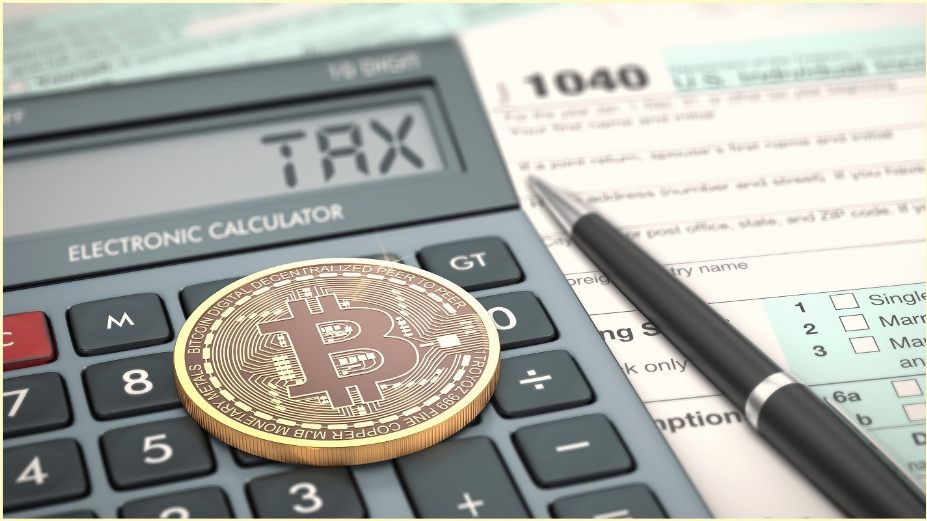The process of filing crypto taxes seems to be off-putting for amateur crypto traders and veterans alike equally. The aversion to filing crypto taxes is entirely justified as it is no walk in the park. Filing taxes on conventional assets is a time-consuming process, so introducing crypto into the picture makes it significantly more confusing.
One of the best things a crypto trader can do, irrespective of their level of experience to streamline the process of filing crypto taxes is using a cryptocurrency tax software.
However, before we get to cryptocurrency tax software, it is imperative to have a general idea about cryptocurrencies.
Why are Cryptocurrencies Unique?
Cryptocurrencies are known to be entirely different from conventional fiat currencies like the U.S Dollar. They are vastly different for the following reasons:

Crypto transactions are irreversible
Irrespective of your actions, a crypto transaction cannot be undone once it is confirmed. In such a case, no bank or central authority can be of assistance.
Crypto traders do not need permission to use virtual currencies
You are not obligated to report to your local bank or any other authority to start performing transactions.
Crypto transactions are pseudonymous
The cryptocurrencies you send and receive are on addresses that consist of multiple characters. It is virtually impossible to trace the real owners of these accounts.
Crypto transactions are immune to external influence
Given how virtual currencies are not backed or controlled by any Government or bank, their immunity to foreign influence is what renders them invulnerable to security attacks.
Crypto Taxes
Crypto is taxed just as how property is under federal tax law in the United States. Cryptocurrency transactions are liable to capital gains, just like property. Capital gains have to be reported on the 8949 form.
When should you pay crypto taxes?
- When you are selling cryptocurrencies for FIAT currencies
- When you are trading your cryptocurrencies for other cryptocurrencies
- When you are using cryptocurrencies to pay for goods and services
When should you not pay crypto taxes?
- You do not have to pay crypto taxes if you are donating your cryptocurrencies to tax-exempt charities or organizations
- Transferring your cryptocurrencies among the wallets you own does not require you to pay crypto taxes
- If you choose to purchase a cryptocurrency using a FIAT currency
- If you are gifting small amounts of the cryptocurrency that do not exceed $15k
- If you decide to lend your cryptocurrency
Should your cryptocurrency increase in value, the profits generated on it will be considered capital gains. However, if your cryptocurrency decreases in value, the losses incurred on it may be deducted against your other capital gains.
It is crucial to note that capital losses may be deducted from the capital gains made on any of your assets.
These capital gains must be declared on the 8949 form, and you will need to maintain an accurate and comprehensive record of every cryptocurrency transaction you carry out to avoid overpaying taxes.
What if I Default on my Crypto Taxes?
Many crypto traders think they can evade crypto taxes due to the pseudonymous, decentralized nature of Blockchain and crypto transactions.
The Internal Revenue Service (IRS) would not attest to this as it has been taking action against crypto tax evaders. Avoiding filing your crypto taxes is a fruitless endeavor, and it would befit you to use a cryptocurrency tax software to file your crypto taxes. Here are a few cryptocurrency tax software worth your time.
Cryptocurrency Tax Software
CryptoTrader.tax:
CryptoTrader.tax is a cryptocurrency software that allows you to calculate your capital gains or losses in a matter of minutes. CryptoTrader.tax has a user-friendly interface to its credit that makes it easy to import your trades and ensure you are not overpaying your taxes.
It supports exchanges that include Coinbase, Bittrex, Gemini, Binance, and Poloniex.You will need to include the following documents:
- Your cryptocurrency income report
- Long and short-term sales report
- IRS 8949 form
- The audit trail report
- End of year positions report
- Your TurboTax direct import
- The TaxAct direct import
Cointracker:
CoinTracker is a widely-known crypto-asset tracker and cryptocurrency tax software.
It automatically synchronizes your asset balances and transactions from your exchange accounts. Its interface displays your digital assets and the associated trading history.
To simplify things for you as a crypto trader, it employs a unified dashboard. In addition to this, it provides a performance tracker, which gives you an intelligible explanation of your crypto investment performance over time.
ZenLedger:
A new and promising cryptocurrency tax software, ZenLedger allows its crypto traders to import their cryptocurrency transactions and calculate their crypto taxes.
This cryptocurrency tax software generates a multitude of parameters that includes capital gains, income, donations, profit and loss statements, and auto-fills tax forms.
It boasts a variety of features, some of which are audit report, CPA access, designation, unlimited exchanges, FIFO/LIFO, crypto as income, ICOs & airdrops, Tax-loss harvesting, and more.
Koinly:
Koinly is yet another popular cryptocurrency tax software and is known to be an intelligent log of your crypto transactions. It automatically matches the transfers among your wallets and also serves as a multi-chain block explorer. Koinly boasts the following features –
- Analytics
- Cost Tracking
- Search, Sort, Filter
- Transfer Detection
- Tax Reports
- Tax Insights
- Margin Trades
- Security
In conclusion, all the cryptocurrency tax software mentioned above are outstanding choices regardless of your experience level as a crypto trader in the new age.





